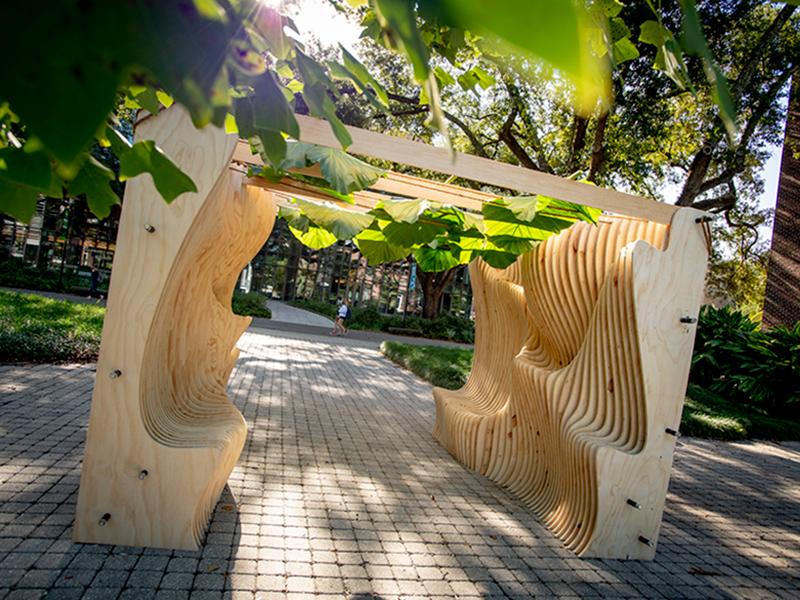Sukkah build in the age of coronavirus
Every year, for the past 11 years, students in the Tulane University School of Architecture have built a sukkah, an open-air hut-like structure under which Jews celebrate Sukkot, a week-long fall harvest festival.
In partnership with Tulane Hillel, students typically build the sukkah in Pocket Park, making it a convenient dining venue for those grabbing lunch from the LBC, the Commons or a nearby food truck.
This year, however, the Sukkah Build Project, dubbed Sukkah 12, presented new challenges, thanks to the COVID-19 pandemic.
“Our goals were very specific this year,” said Lizzie Bateman, a fifth-year architecture student. “We aimed to create a Sukkah which is COVID-19-conscious and allows for social distancing.
“This has called for a reimagining of the typical Sukkah typology. Because this was also a design build during COVID-19, our design had to go up quickly, and the students constructing it couldn’t be exposed to one another.”
The team of seven achieved its goal on Oct. 1. They did it quickly and masterfully, in part, because they did much of the work ahead of time, including designing and building pre-fabricated walls in the School of Architecture’s Millhaus, a fabrication lab. The finished product is made of pine and measures 10.5 feet by 12 feet. It has built-in seats that allow four people to sit socially distanced, and it has two walls instead of the traditional three to facilitate safe passage.
Seth Laskin, a junior who has been participating in the project since he was a freshman and served as its leader this year, said the design build was especially gratifying, given the added the challenges surrounding it.
“So much goes into planning beyond what is seen in the final product, from design meetings, to material collection, budget planning, and coordination with the TU Hillel,” Laskin said.
The team’s goal, he said, was to produce something that reflects the brilliance of Tulane’s architecture students. “The team as a whole is truly so talented, and this project was an amazing opportunity for our collective opinions and skills to be demonstrated.”
Bateman agreed. "Our hope was for people to enjoy the space and feel safe while doing so," she said. "We think it works really well in capturing people's attention and making the interior space exciting and inviting."

